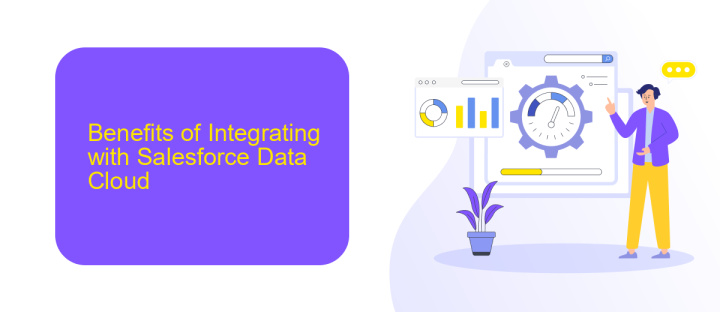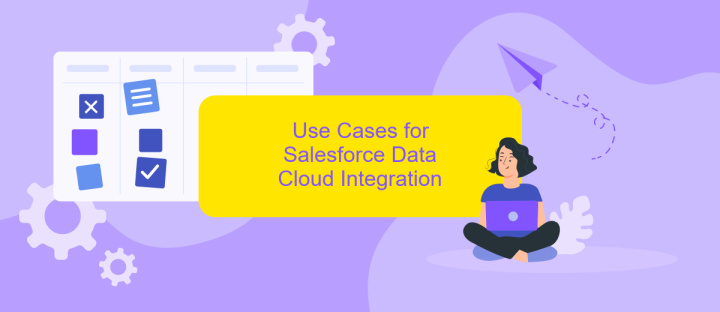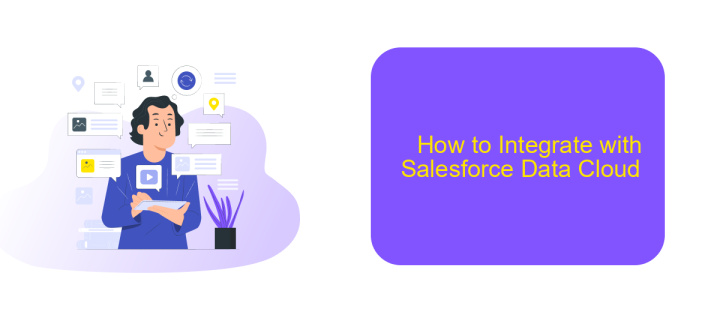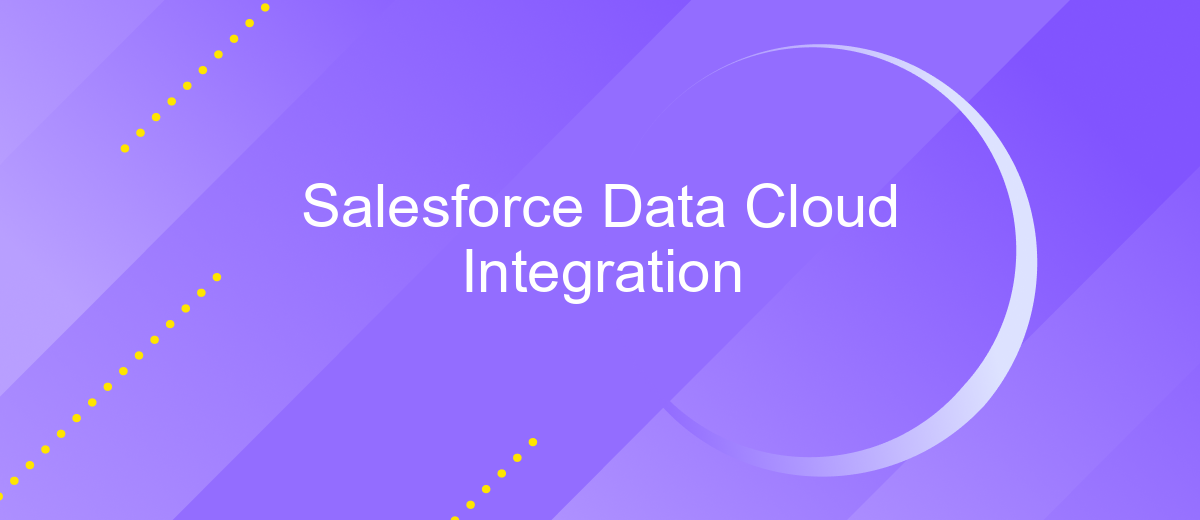Salesforce Data Cloud Integration
In today's fast-paced digital landscape, seamless data integration is crucial for businesses striving to stay competitive. Salesforce Data Cloud Integration offers a robust solution, enabling organizations to unify disparate data sources, enhance customer insights, and drive informed decision-making. This article explores the key benefits and strategies for leveraging Salesforce Data Cloud to optimize your business operations and achieve a holistic view of your data.
Introduction to Salesforce Data Cloud Integration
Salesforce Data Cloud Integration is a powerful solution that enables businesses to seamlessly connect and unify their data across various platforms. By leveraging Salesforce's robust cloud infrastructure, organizations can ensure real-time data synchronization, improved data accuracy, and enhanced decision-making capabilities.
- Real-time data synchronization
- Improved data accuracy
- Enhanced decision-making
- Seamless connectivity across platforms
One of the key tools that can facilitate this integration is ApiX-Drive. This service allows businesses to effortlessly set up and manage their integrations, ensuring that data flows smoothly between Salesforce and other systems. With ApiX-Drive, users can automate data transfers, reduce manual work, and maintain data consistency across all connected applications. This makes Salesforce Data Cloud Integration not only efficient but also highly scalable, catering to the dynamic needs of modern businesses.
Benefits of Integrating with Salesforce Data Cloud

Integrating with Salesforce Data Cloud offers a multitude of benefits that can significantly enhance your business operations. By leveraging this powerful platform, companies can unify disparate data sources, providing a holistic view of customer interactions and behaviors. This comprehensive data aggregation allows for more personalized marketing campaigns, improved customer service, and more informed decision-making processes. Moreover, the seamless integration ensures that data is consistently synchronized across all channels, reducing the risk of data silos and ensuring accuracy.
One of the standout advantages of integrating with Salesforce Data Cloud is the ease of setup and management, especially when using third-party services like ApiX-Drive. ApiX-Drive simplifies the integration process by providing user-friendly tools and automation features that require minimal technical expertise. This allows businesses to quickly connect various applications and data sources, streamlining workflows and enhancing productivity. With ApiX-Drive, companies can efficiently manage their integrations, ensuring that data flows smoothly and securely between systems, ultimately driving business growth and operational efficiency.
Use Cases for Salesforce Data Cloud Integration

Integrating Salesforce Data Cloud into your business processes can significantly enhance your data management and customer relationship strategies. By leveraging this integration, companies can streamline their operations and gain deeper insights into customer behavior and preferences.
- Unified Customer Profiles: Aggregate data from various sources to create comprehensive customer profiles, enabling personalized marketing and sales strategies.
- Real-time Analytics: Utilize real-time data analytics to make informed decisions quickly, improving operational efficiency and customer satisfaction.
- Automated Workflows: Implement automated workflows to reduce manual tasks, increase productivity, and ensure data consistency across platforms.
- Enhanced Reporting: Generate detailed reports with integrated data, providing a holistic view of business performance and customer interactions.
- Third-Party Integrations: Use tools like ApiX-Drive to seamlessly connect Salesforce Data Cloud with other applications, ensuring smooth data flow and synchronization.
By integrating Salesforce Data Cloud, businesses can unlock new opportunities for growth and efficiency. Whether it's through real-time analytics, automated workflows, or enhanced reporting, the benefits are substantial. Additionally, leveraging third-party tools like ApiX-Drive can further simplify the integration process, making it easier to harness the full potential of your data.
How to Integrate with Salesforce Data Cloud

Integrating with Salesforce Data Cloud can significantly enhance your data management capabilities, providing a seamless flow of information across your organization. The process involves a few key steps to ensure a smooth and efficient integration.
First, you need to establish a connection between your data sources and Salesforce Data Cloud. This typically requires configuring APIs and setting up authentication protocols to ensure secure data transfer. It's crucial to map out the data fields correctly to avoid any discrepancies during the integration process.
- Identify the data sources you wish to integrate.
- Configure API connections and authentication methods.
- Map data fields accurately.
- Test the integration for any issues.
Using services like ApiX-Drive can simplify this process. ApiX-Drive offers user-friendly tools to connect various applications and automate data transfer, reducing the need for manual intervention. By leveraging such services, you can ensure a more reliable and efficient integration with Salesforce Data Cloud, ultimately enhancing your data management strategy.


Best Practices for Salesforce Data Cloud Integration
When integrating Salesforce Data Cloud, it's crucial to ensure data accuracy and consistency across all systems. Start by auditing your existing data to identify discrepancies and clean up any redundant or outdated information. Establish a clear data governance policy to define how data should be managed, accessed, and updated. This will help maintain data integrity and prevent issues down the line.
Utilize integration tools like ApiX-Drive to streamline the process and reduce manual effort. ApiX-Drive offers seamless connectivity between Salesforce and various data sources, enabling automated data synchronization and real-time updates. Regularly monitor the integration to catch and resolve any issues promptly. Additionally, document all integration processes and configurations to facilitate troubleshooting and future updates. By following these best practices, you can ensure a smooth and efficient Salesforce Data Cloud integration.
FAQ
What is Salesforce Data Cloud Integration?
How can I integrate Salesforce Data Cloud with my existing systems?
What are the benefits of integrating Salesforce Data Cloud with other data sources?
Is it possible to automate the data integration process with Salesforce Data Cloud?
What should I consider before starting a Salesforce Data Cloud Integration project?
Time is the most valuable resource in today's business realities. By eliminating the routine from work processes, you will get more opportunities to implement the most daring plans and ideas. Choose – you can continue to waste time, money and nerves on inefficient solutions, or you can use ApiX-Drive, automating work processes and achieving results with minimal investment of money, effort and human resources.

